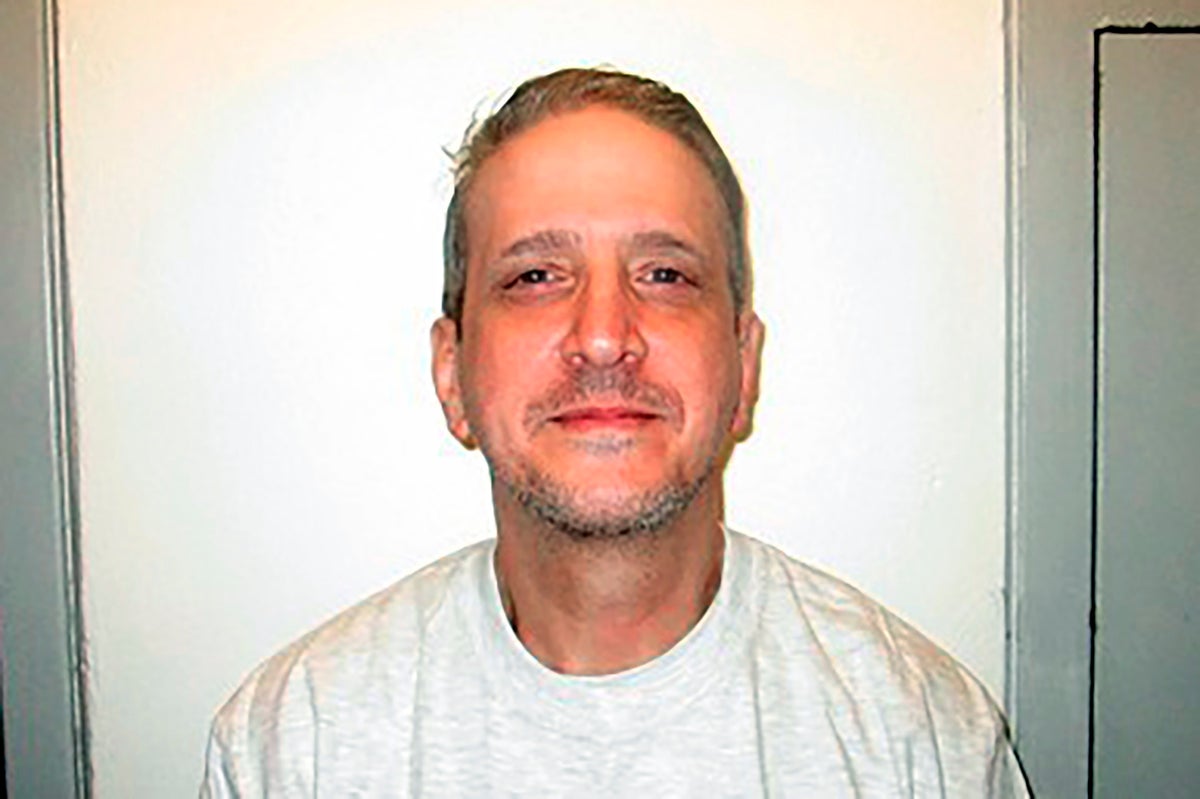
An Oklahoma state board will decide Wednesday whether to recommend clemency for a death row inmate who is scheduled to die next month and who even the state's top prosecutor says deserves a new trial.
The Pardon and Parole Board will weigh whether to recommend that Republican Gov. Kevin Stitt spare the life of Richard Glossip, who has long maintained his innocence in the 1997 murder-for-hire killing of his former boss, motel owner Barry Van Treese.
The appointed board, which includes two former prosecutors, an ex-police officer, a former judge and a court administrator, typically decides whether to recommend clemency after hearing arguments from prosecutors, defense attorneys, the victim's family and the condemned inmate. But in an unusual twist, the state's new attorney general, Gentner Drummond, said that instead of presenting a case for Glossip's execution, he will ask the panel to recommend sparing Glossip's life.
“I am not aware of an Oklahoma Attorney General ever supporting a clemency application for a death row inmate,” Drummond wrote in a Monday letter to the parole board. “In every previous case that has come before this board, the state has maintained full confidence in the integrity of the conviction. That is simply not the case in this matter due to the material evidence that was not disclosed to the jury.”
If the board recommends clemency, Stitt can commute Glossip's sentence or reject their recommendation and allow the execution to proceed as scheduled on May 18. Glossip has a petition pending with the U.S. Supreme Court seeking to stop his execution.
Drummond said in a court filing that although the state is not suggesting Glossip is innocent, he had numerous concerns about the case, such as trial evidence that was destroyed while his appeal was pending and the state's failure to disclose potentially exculpatory evidence, including that the key witness against Glossip lied to the jury about his psychiatric treatment and reasons for taking the mood-stabilizing drug lithium. But the court rejected that request last month, paving the way for Glossip's May execution.
Two independent investigations — one by a Houston law firm and another requested by Drummond — have concluded that based on all of the evidence available today, it would be unlikely a jury would vote to convict him.
Glossip was convicted and sentenced to death at two separate trials after his first conviction was tossed for ineffective counsel. The key witness against Glossip at both trials was Justin Sneed, a handyman at the motel who admitted robbing and killing Van Treese but claimed he did so only after Glossip promised to pay him $10,000. In exchange for his testimony, Sneed received life in prison. He has denied several Associated Press interview requests.
Glossip's attorneys claim that police suspected Glossip because of some inconsistent statements he made during the search for Van Treese, and that while interviewing Sneed, he never mentioned Glossip until after detectives brought up his name six times and emphasized that Glossip was “snitching on him.” The attorneys suggest in their clemency application that Van Treese's killing was not a murder for hire, but a botched robbery for drug money committed by Sneed and his girlfriend.
"Richard Glossip is an innocent man who has been the victim of a massive breakdown in the justice system that would have been disturbing had it occurred even in a minor case," they wrote.
Glossip’s case attracted international attention after actress Susan Sarandon — who won an Academy Award for her portrayal of death penalty opponent Sister Helen Prejean’s fight to save a man on Louisiana’s death row in the 1995 movie “Dead Man Walking” — took up his cause in real life. Prejean herself has served as Glossip’s spiritual adviser and frequently visited him in prison. His case also was featured in a 2017 documentary film titled “Killing Richard Glossip.”







